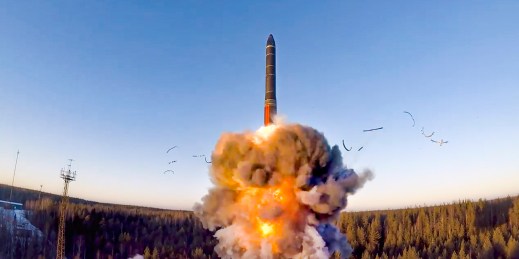
The European Union’s integration has often been driven by crisis. At the same time, not every problem confronting European policymakers has led to further integration. It is only when specific external threats become intertwined with tensions inside the EU that a moment of crisis can present policymakers with an existential choice.





